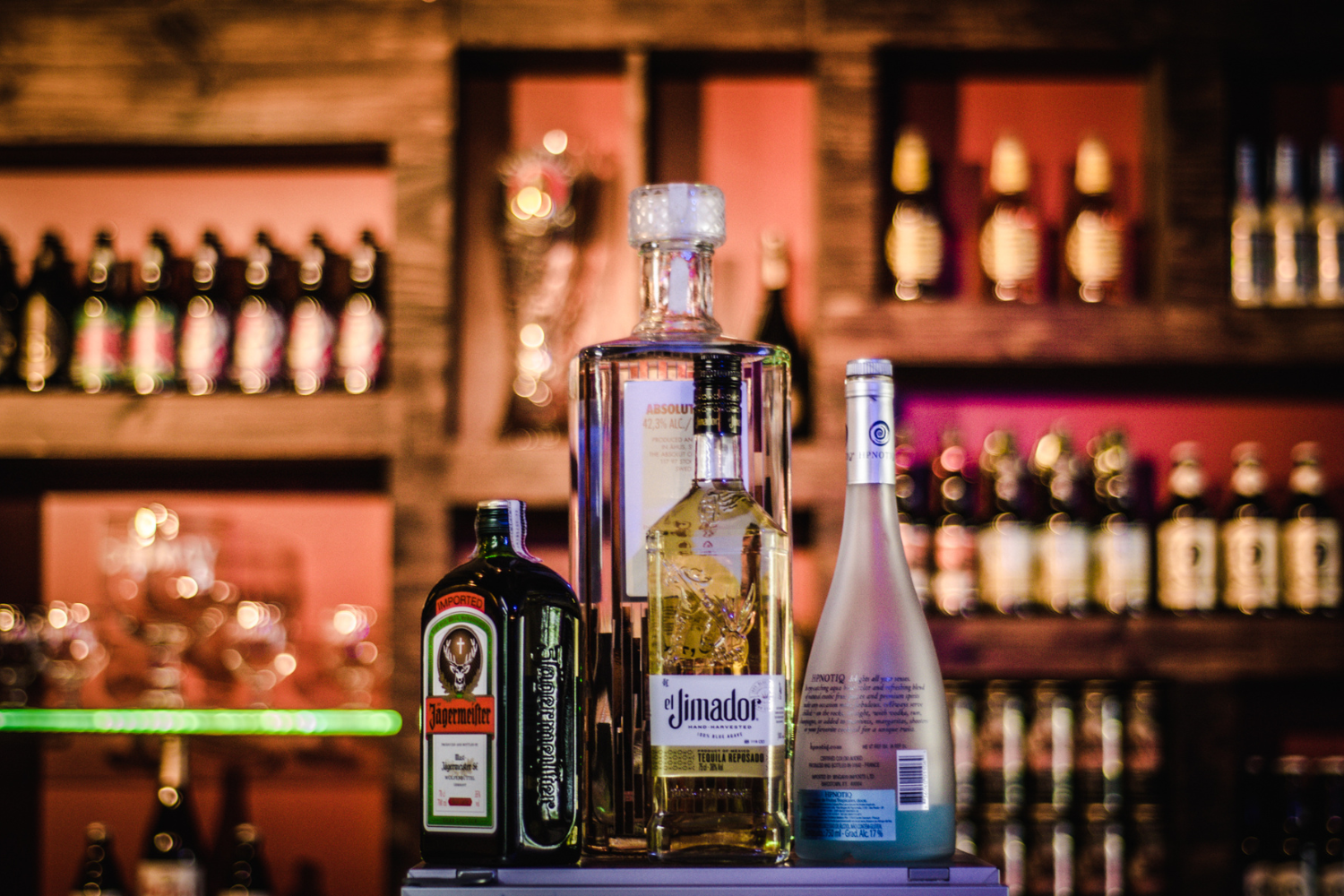Many people want to enjoy alcohol without harming their liver. Knowing how drinking affects liver health can help you make smarter choices that keep it working well, allowing you to manage risks. What you drink, how much, and how often all play a role in how your liver handles alcohol over time.
Some drinks, like light beer or red wine, have fewer calories and may offer small health perks when enjoyed in moderation. But heavy drinking, binge drinking, or adding sugary mixers can all raise the risk of liver damage. This guide breaks down alcohol intake, drinking habits, and lifestyle changes that may support liver health and overall health.
How the Liver Processes Alcohol
Your liver’s job is to break down alcohol and remove it from your system. As soon as you start drinking, it gets to work filtering alcohol from your blood. The more you drink, the harder that job becomes.
Large quantities over time can damage liver cells, leading to liver disease or fatty liver. Some alcoholic beverages contain more alcohol per serving, while others include additives or sugar that increase the workload. Drinks with higher alcohol content or added ingredients can make it harder for your liver to keep up, especially with regular or excessive alcohol consumption.

Does the Type of Alcohol Really Matter?
Not all alcoholic drinks affect your liver in the same way. The type of alcohol, its ingredients, and how much you drink can all influence your risk of liver damage or long-term health issues.
Comparing Liquor, Wine, Beer, and Seltzers
Each category of alcohol has its own profile, and some are easier on the liver when consumed in moderate amounts. Here's a quick comparison:
|
Hard liquors (vodka, whiskey, etc.) |
~40% (1.5 oz = one shot) |
90–120 |
Often none, but varies by brand |
High concentration stresses liver quickly |
|
Red wine |
~12–15% (5 oz = one glass) |
120–130 |
Low sugar, polyphenols present |
Studied for their role in supporting healthy cardiovascular function |
|
Regular beer |
~4–6% (12 oz = one drink) |
150–200 |
Can include grains, carbs |
Higher volume, may lead to fatty liver with frequent intake |
|
Hard seltzer |
~4–6% (12 oz = one can) |
90–100 |
Flavored, often low sugar |
Lower calorie option with good portion control |

Alcohol Content vs Volume
Your liver reacts to both how strong a drink is and how much you have. One shot of liquor can have as much alcohol as a glass of wine or a can of beer. The same amount of alcohol spread over a longer period is easier for the liver to process.
Drinks with lower alcohol content, but in large volumes, can still overload the liver if consumed back-to-back. Paying attention to standard drink sizes helps reduce the increased risk of liver stress and high blood pressure.
Sugar, Additives, and Other Ingredients to Watch
Aside from alcohol, what’s in your drink matters. Extra sugar, artificial flavors, and preservatives make your liver work even harder, especially on top of the alcohol itself. These may impact digestion, calorie intake, and weight management goals.
Here are common ingredients to watch out for:
-
High sugar mixers (colas, sweetened juices)
-
Artificial sweeteners
-
Caramel coloring in dark liquors
-
Natural sweetness from added fruit syrups
-
Preservatives like sodium benzoate
How Different Types of Alcohol Affect Liver Metabolism
Some types of alcohol place a heavier burden on the liver than others. Each form of alcohol is metabolized differently, depending on its alcohol level, ingredients, and how it's consumed.
Clear Liquors and Their Alcohol Content
Clear liquors, such as vodka, gin, and tequila, are often considered “cleaner” choices due to their lack of additives and sugar. But these alcoholic beverages have high alcohol content—usually around 40% per one shot.
Even small amounts of clear liquor pack a high alcohol punch, and drinking them often can still harm your liver over time. Without good portion control, these drinks can easily lead to excessive alcohol consumption, especially in social settings.
Red Wine and Its Polyphenol Profile
Some research suggests red wine contains compounds that may be good for heart health, but alcohol still stresses the liver. Drinking alcohol every night, even one glass, can still raise risk factors for liver disease and liver cancer over time.
Low-Alcohol Drinks
Drinks with lower alcohol content, such as light beer, white wine, or canned hard seltzer, may seem easier on the liver. But alcohol intake isn’t only about strength—it’s also about how much and how often.
Having two drinks of light beer in a row still means your liver is metabolizing a significant amount of alcohol. Choosing drinks with fewer calories and spacing them out with water can help minimize stress on the liver and support a more healthy lifestyle.
Drinking Habits That Affect Liver Health
How you drink is just as important as what you drink. Liver health depends not only on the type of alcohol but also on your drinking habits, including how often and how much alcohol is consumed.
Why Binge Drinking Does More Harm Than Moderate Sipping
Binge drinking, which is basically having many drinks in a short time, floods your liver with alcohol and raises the risk of liver damage and other health problems. When you drink heavily in one sitting, your liver can’t process the alcohol fast enough, which leads to a build-up of toxins that harm liver cells. Even if it only happens occasionally, this pattern puts more stress on the body than moderate alcohol consumption spread out over time.
The Importance of Frequency and Quantity
Having one drink each day versus two drinks every weekend might seem similar, but the frequency and quantity both matter. The liver recovers better with longer breaks between drinking episodes.
Even small quantities consumed regularly can add up and increase the risk of developing liver disease, especially without lifestyle changes to support recovery. Understanding how alcohol affects your body over time can help you make better choices.
Is Daily Drinking Worse Than Weekend Drinking?
Daily alcohol intake gives the liver little time to rest. Moderate drinking during the week can lead to more consistent stress on the liver than weekend alcohol consumption, even in smaller amounts. However, drinking large amounts on weekends is also harmful.
Both habits carry risk factors for fatty liver disease, high blood pressure, and other long-term issues. A healthy lifestyle includes being mindful of both the amount and frequency of your drinking.

Tips for Safer Drinking if You’re Liver-Conscious
If you're looking to reduce the impact of alcohol on your liver without cutting it out completely, there are simple strategies that can help. These steps support overall health while still allowing for occasional alcoholic drinks.
How to Pace Your Drinks and Stay Hydrated
Drinking slowly gives your liver more time to process alcohol. Aim for good portion control by sticking to standard drink sizes and spacing them out.
Drink water between alcoholic drinks to stay hydrated and avoid overdoing it. Staying hydrated also helps manage the effects of alcohol on gut health and blood pressure.
Foods to Eat Before or During Drinking
Eating before drinking can slow down alcohol absorption and support your liver. The right foods can reduce the load on your system and help balance blood sugar and energy levels.
Here are some helpful foods to eat:
-
Whole grains (brown rice, oats, whole grain toast)
-
Lean proteins (chicken, fish, tofu)
-
Healthy fats (avocado, olive oil, nuts)
-
Fruits and vegetables (especially leafy greens)
-
Fermented foods (yogurt, kimchi) for gut health

When to Take Breaks From Alcohol Completely
Giving your liver a break from alcohol can help it recover, especially during times when it’s already working harder, and may also help with weight and energy management.
Long-term reductions in alcohol intake may promote healthy metabolism and contribute to cardiovascular wellness. It’s also helpful if you’re starting lifestyle changes to improve your heart health or mental clarity.
When to Rethink Alcohol Intake: Personal and Lifestyle Considerations
Sometimes, the best choice is cutting back or stopping alcohol altogether. This depends on your goals, current health conditions, and how your body responds to drinking alcohol over time.
You’re Focused on Supporting Long-Term Liver Function
If your goal is to improve or protect long-term liver health, reducing alcohol consumption is one of the most effective steps you can take. Even moderate drinking over many years can contribute to fatty liver and make it harder to maintain a healthy diet. Cutting back on alcohol may support normal liver function after occasional lifestyle stressors and may help reduce the risk of complications over time.
Your Alcohol Tolerance Has Changed Over Time
As you age or change your diet, you may notice you feel the effects of alcoholic beverages more quickly. This shift in alcohol tolerance can be a sign that your liver isn’t processing alcohol as efficiently.
It may also mean that existing risk factors, such as high blood pressure or weight gain, are making it harder for your body to recover. Adjusting your habits can help prevent long-term problems.
You’re Managing Other Lifestyle Factors Like Sleep or Stress
Alcohol can interfere with sleep quality, raise blood pressure, and impact stress regulation. If you’re already working on improving these areas, cutting back on drinking can offer faster results. Reducing alcohol may make it easier to manage weight and maintain habits that support a healthy lifestyle, which supports liver health and overall health.
Choosing Liver-Friendly Alcohol Starts With Awareness
There’s no one-size-fits-all answer to which alcohol is easiest on the liver—but understanding how ingredients, concentrations, and drinking habits affect your body can help you manage the risks that come with alcohol. Like having a slice of cake or a sugary soda, many people choose to drink for social reasons or enjoyment, even though it's not ideal for the body. If you do choose to drink, what matters is staying mindful of quantity, frequency, and how your choices affect liver health over time.
For those looking to enjoy alcohol while actively supporting liver function, Drinkwel Capsules are specifically formulated to offer liver support during drinking. For daily maintenance and overall liver wellness, Revil provides ongoing support to help your body stay resilient.
Frequently Asked Questions
Is vodka less concentrated than whiskey
No, vodka and whiskey typically have similar alcohol content—around 40% per standard shot.
What alcohol contains fewer additives?
Clear liquors like vodka or gin usually contain fewer additives than flavored or dark liquors.
Can I drink alcohol with a liver condition?
People concerned about liver health should consult a healthcare provider before consuming alcohol.
Does beer hurt the liver more than hard liquor?
Both can strain the liver, but beer’s larger serving sizes may lead to higher total alcohol intake over time.
Are any alcoholic drinks safe for fatty liver?
No alcohol is considered safe for fatty liver, but avoiding alcohol consumption entirely is the most protective option.
References
-
Lieber C. S. (1994). Hepatic and metabolic effects of ethanol: pathogenesis and prevention. Annals of medicine, 26(5), 325–330. https://doi.org/10.3109/07853899409148346
-
Lombardo, M., Feraco, A., Camajani, E., Caprio, M., & Armani, A. (2023). Health Effects of Red Wine Consumption: A Narrative Review of an Issue That Still Deserves Debate. Nutrients, 15(8), 1921. https://doi.org/10.3390/nu15081921
-
Osna, N. A., Donohue, T. M., Jr, & Kharbanda, K. K. (2017). Alcoholic Liver Disease: Pathogenesis and Current Management. Alcohol research : current reviews, 38(2), 147–161. https://pmc.ncbi.nlm.nih.gov/articles/PMC5513682/
-
Rehm J. (2000). Alcohol consumption and mortality. What do we know and where should we go?. Addiction (Abingdon, England), 95(7), 989–995. https://doi.org/10.1046/j.1360-0443.2000.9579891.x
-
Rehm, J., Samokhvalov, A. V., & Shield, K. D. (2013). Global burden of alcoholic liver diseases. Journal of hepatology, 59(1), 160–168. https://doi.org/10.1016/j.jhep.2013.03.007
-
Roerecke, M., Kaczorowski, J., Tobe, S. W., Gmel, G., Hasan, O. S. M., & Rehm, J. (2017). The effect of a reduction in alcohol consumption on blood pressure: a systematic review and meta-analysis. The Lancet. Public health, 2(2), e108–e120. https://doi.org/10.1016/S2468-2667(17)30003-8
-
Stanhope K. L. (2016). Sugar consumption, metabolic disease and obesity: The state of the controversy. Critical reviews in clinical laboratory sciences, 53(1), 52–67. https://doi.org/10.3109/10408363.2015.1084990
